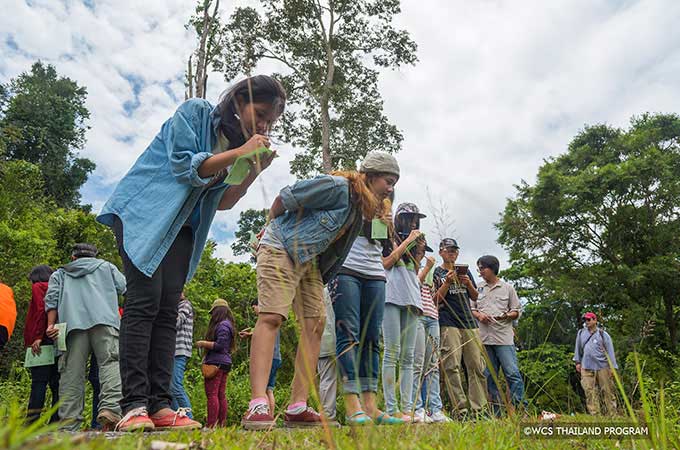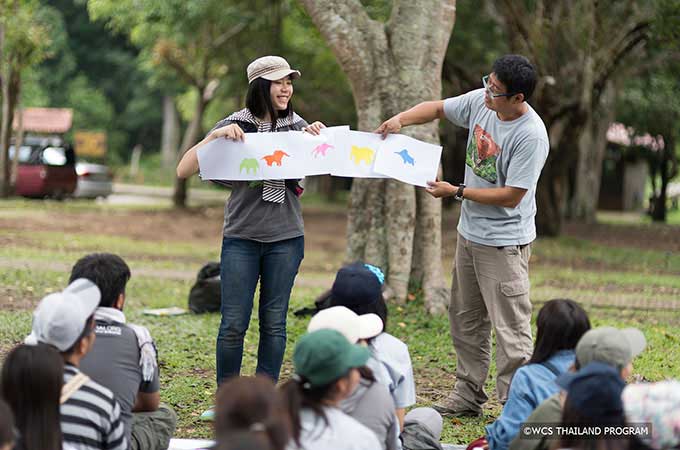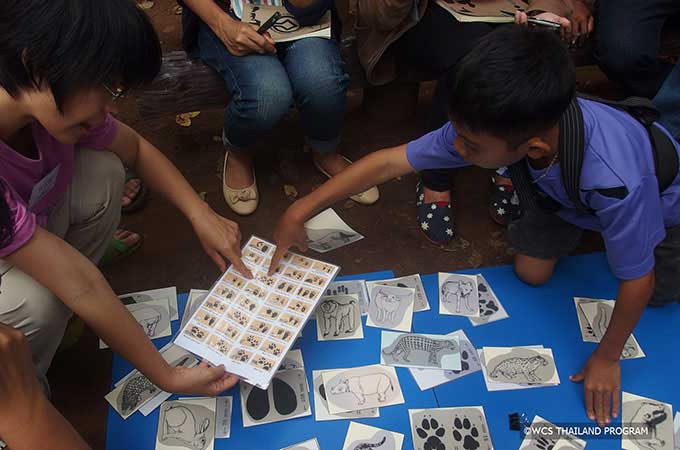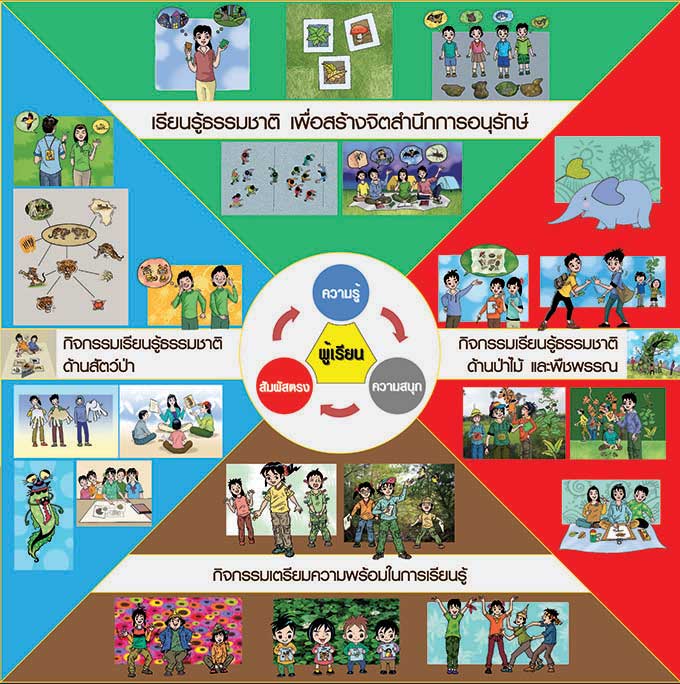In 2009, Wildlife Conservation Society (WCS) Thailand program launched Nature Education Network with the purpose to produce and disseminate nature information and knowledge for people, especially, children and students. Therefore, nature game for wildlife conservation was created for inspiring people to value nature, having better understanding and good attitudes toward wildlife and wild places through our nature games, consequently, improving their protection and conservation action in the wild places.

“Huai Kha Khaeng Wildlife Sanctuary” (HKK) was selected as a pilot site due to its natural significance, particularly, large mammals such as Indo-Chinese tiger and Asian elephant. Therefore, Nature Education Program for Wildlife Conservation was launched with cooperation from HKK, Huai Kha Khaeng Nature and Wildlife Education Center, Khao Nang Rum Wildlife Research Station (Department of National Parks, Wildlife, and Plant Conservation) and WCS Thailand program. The project was further expanded to a campaign for wildlife protection with the focus on tiger and its preys to build public awareness by continuous running through various activities with local schools and communities around HKK.

|  |
Thungyai-Huai Kha Khaeng (TY-HKK) was declared as a World Heritage Site due to its large intact forest with intense wildlife and plant diversity, thus, learning pattern for nature is also various. Besides, the activities should be informative, interactive, and fun in order to raise people awareness with positive attitude toward nature conservation.
In 2013, Nature Education Manual for Wildlife Conservation was established by Nature Education Network which consists of two parts; 1) Basic knowledge for nature conservation and 2) Basic knowledge for large mammal (e.g. tigers and elephants) conservation. In addition, the trainings for national and international educators were launched in order to enhance their understanding for further natural learning activities which organized by themselves.

The advantages of Nature Game for Wildlife Conservation are as following;
- It can be implemented with any audiences whether to work with community groups, literate or non-literate audiences, children or adults
- It is kind of co-learning activities between educators, students and nature.
- It focuses on learning among nature by experience and direct contact with nature.
- It is a learning through various games which is more interesting than usual.
- The material use in activities is easy-to-use and not complicated.
- The activities were designed based on basis of academic information which is easier to learn step-by-step.
- The concept or contents of activities are easier to apply or modify by educators in order to fit with particular audiences and locations.